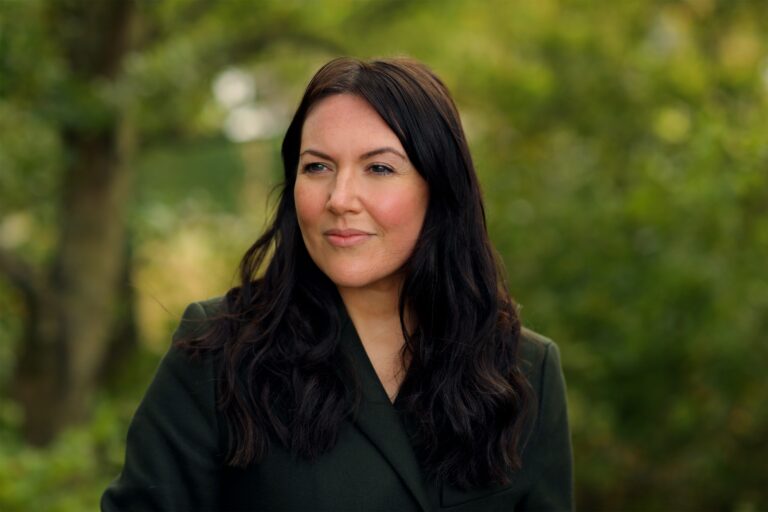Our pioneering writing development programme Discoveries is completely free to enter and invites unpublished women writers from the UK or Ireland to submit the opening of a novel in English, of up to 10,000 words.
Along with Discoveries partner Curtis Brown Creative, we hosted a special event to help entrants get started on their novels, featuring Discoveries Chair of Judges and Women’s Prize Founder Kate Mosse, Discoveries judge and author Irenosen Okojie, literary agent Natalie Jerome and Abby Parsons, Senior Manager at Curtis Brown Creative.
You can watch the event in full here, or keep reading for some of the panellists’ best advice for new writers.
Audience Q: How can you tell if your idea for a novel is strong enough to develop?
Natalie Jerome: Keep reading, read other people’s work. The industry can feel very daunting, it can feel very remote looking at those brilliant authors and books. In terms of managing the self critical voice, you’ve got to keep reading, look at other people’s work and get a sense of perspective. It can be so difficult to know if your idea is the right one, sharing your ideas with others can help. It doesn’t have to be an agent, it can be family or friends. Build confidence in the strength of your own story and your idea.
Irenosen Okojie: If there is a sense of momentum within you about the book then that is a clear indication that something is happening, something is going on and you need to tap into that and keep writing. Take it as pieces of a puzzle, break it down into little parts. Reading other writers is great as it gives you a blueprint into how it’s done, and you can find ways to keep excited about it.
Kate Mosse: Books that really work are the ones that have integrity as themselves, they come from the inside out, not the outside in. So if you care about your book, then it’s worth writing. You shouldn’t sit outside of it thinking: is this going to sell? That is not the job of the author.
Audience Q: Are there any formulas that you find work really well for the opening?
Abby Parsons: There’s something to be said for it feeling both familiar but new and exciting, perhaps a quirk to the narrator’s voice or a setting you’ve never read before. For me it’s that extra something. There needs to be a sense the writer knows their characters inside out.
Natalie Jerome: I really love books that tell me something about the human condition and a unique delivery. You don’t have to tell the reader exactly what is going on all the time, they can draw their own conclusion of the characters. The best characters are ones that are memorable and immediate.
Kate Mosse: There is no trick or secret answer to writing an engaging first page or chapter. It is about you the writer, delivering your vision.
Irenosen Okojie: A strong authorial voice, but a trajectory as well. There have to be things happening, or a sense that the writer knows where the story is going. I personally love boldness in the voice, I’m also looking for some risk in the work. Does it feel like I’m discovering something new whilst there is also a specificity of experience? It has to work on multiple levels. I want to keep turning the pages.
Audience Q: Do you have to know the ending of your novel before you start writing?
Natalie Jerome: I would say no! It’s so important to have your big idea and the story, and something to say. If you’re not completely certain where it’s going to end, is that so important? Can you go on the journey and see where it leads you?
Kate Mosse: I do think you need to know what sort of book it is you’re writing, and an end point to it.
Audience Q: How do you know what advice or criticism to listen to and what is right for your book?
Irenosen Okojie: You’ve got to remember your editor and agent want it to be the best book possible, so bear that in mind when taking feedback. Often the advice will be things you were already worried about. For me they were things niggling in the background that I didn’t feel confident enough to change the direction. There will be things you really want to hold on to, so you have to be prepared to justify why they should stay in the book. You can fight for them but if they can go, let them go and don’t be too precious, what you write is never wasted. You do have to be able to listen, your work will suffer as a result if you don’t learn that practice as soon as possible.
Audience Q: What do you do to give the voice energy and consistency whilst you’re working on a long project?
Kate Mosse: I suggest you get your first draft down, as Natalie said, don’t overthink it. Write the book you want, then ask yourself the questions after. It is important to understand that editing is what makes a good writer. For me, my first drafts are all emotion, but by the second and third draft the consistency of voice emerges. Read what you did the day before to stay in that voice and immerse yourself in the world of it.
Audience Q: Is it possible to be innovative and exciting as an older writer?
Kate Mosse: This competition is about writing, it’s not age that makes the difference it’s whether the story is there. Susanna Clarke, our current Women’s Prize winner is in her 60’s.
Natalie Jerome: It comes back to the story and your voice, if you have something you really think needs to be out in the world then it will be, it’s the strength of the story. Doris Lessing won the Nobel Laureate at 88!
Irenosen Okojie: Exactly, and it would be remiss not to mention Bernardine Evaristo, who is an older woman writer who won the Booker for her 13th book, and she is finally getting the recognition she deserves.
Audience Q: Is it important for the writer to categorize the genre of the book, or is that something for publishers or agents to worry about?
Irenosen Okojie: If you get too industry focussed then you don’t write what you want to write, don’t allow yourself to be dictated by what might be happening in the publishing world. Claim the writing space with confidence first.
Kate Mosse: For Discoveries, we don’t care about genre, we care about whether we want to carry on reading this book. It doesn’t matter what the genre might be.
Natalie Jerome: What piques people’s interests and what gets the book over that line to publication is whether it is any good and have I heard it before, it boils down to that.
Abby Parsons: If you’re starting from a point of genre, that’s starting from the outside in. We see writers on our courses (at Curtis Brown Creative) tying themselves up in knots trying to fit their work into a genre and the most important thing is to write what you want to write. That said, having a broad understanding of where or who it might sit alongside can be really helpful when it gets to talking about it, or pitching it to others.
Audience Q: People will have been doing NaNoWriMo for the month of November, is it a good idea to have a word count?
Irenosen Okojie: I find doing a word count quite useful, so I’ll write three-four mornings a week and write 3,000-4,000 words. You could also take the approach of showing up at your desk and seeing how long you can write for, it depends what works for you.
Audience Q: What happens when you have lots of little ideas, but not one clear one?
Abby Parsons: Nilly, one of last year’s Discoveries shortlisted authors mentioned how she took lots of experience from her life and her friend’s life, and then started writing from one connecting point. To find the one you want to pursue, find one you want to grab and run with, and see where it takes you.
Natalie Jerome: Biggest piece of advice I would give is to write what you want to say, not what you think is happening in the market or publishing industry.
Audience Q: Can you write a book based on people from different backgrounds, faiths and experiences? How do you decide what is your story to write or not?
Irenosen Okojie: I think as writers we should be able to write from different perspectives, but if you’re writing about a different culture or perspective, you have to do it from a place of respect. Maybe get someone from that culture to feed back on the book, because you’ve got to make sure you’re being sensitive to the story. Are you doing it justice, making the characters as rich and complex as possible and giving them dimension? There has to be specificity and respect.
Natalie Jerome: It is a fraught period, but the key thing in this debate is respect and sensitivity. I have published books by people very different to me and the fundamental point of this is about stories, it’s about what you have to say and writing what you want to write. I am hugely concerned about the rise of sensitivity reads and sensitivity readers, and supporting the industries that are not necessarily hiring diversely enough or publishing diversely enough and are supporting the status quo of the industry. I want to see more black editors, publishers and agents so we don’t end up in this situation.
Abby Parsons: If something could be a potential issue, just make sure you do the research.
Kate Mosse: As writers it is our job to write outside of ourselves, and I think of the brilliant quote from Kit De Waal: ‘Don’t dip your pen in other people’s pain.’
Inspired by our brilliant panellists? Watch the full video here.
Go to our Discoveries page to learn more about the programme and find out how to enter!








